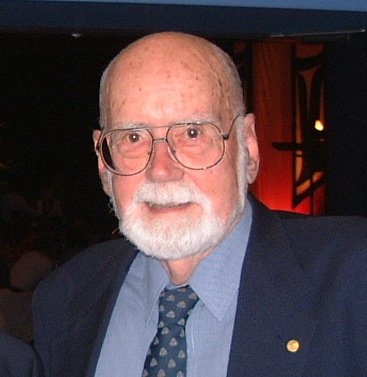Edward Donnall Thomas was a Nobel Prize winning haematologist known for his work in making bone marrow and blood stem cell transplantation a treatment for leukaemia and other blood conditions. His work has saved and improved the lives of hundreds of thousands of people and has advanced medical knowledge. Here is a brief summary of how he lived his life…
1920 – Born to the second wife of a 50-year-old general practitioner in a small town in Texas.
Childhood – Grew up in that small town with mediocre academic results all the way up to university.
University – He enrols in the University of Texas, studies chemistry and chemical engineering. Money is short so he takes on various jobs. Waits tables in a girls’ dormitory and meets his wife, Dorothy Martin who is training to be a journalist. They marry and will go on to have 3 children together.
Age 21 – He graduates with a Bachelor’s degree.
Age 23 – He graduates with a Master’s degree and enrols in Harvard Medical School.
Age 26 – He graduates with a doctorate and does his residency at Peter Bent Brigham Hospital in Boston. There, he meets Joseph Murray who becomes a friend and colleague, and they would pursue research on transplants, bone marrow and leukaemia. His wife becomes a lab technician to support the family and they begin working closely together.
Age 35 – He becomes physician-in-chief at the Mary Imogene Bassett Hospital, a teaching hospital in New York associated with Columbia university.
Age 43 – He moves his lab to the United States Public Health Service in Seattle.
Over the course of his career – His research on haematology, animal models and rigorous studies in humans reduces the painful reaction patients can have to a transplant. His bone marrow transplant research aids leukaemia and anaemia sufferers and encourages further research in those fields.
Age 45-69 – He is a member of numerous medical boards and committees with medical institutions like the National Institutes of Health, Leukaemia Society of America, National Cancer Institute, American Society of Hematology and Academie Royale de Medecine de Belgigue.
Age 54-71 – He gives lectures at medical institutions all around the world.
Age 55-78 – He wins many awards from medical associations.
Age 70 – He wins the Nobel prize in Physiology or Medicine along with his friend, Joseph Murray, and also the National Medal of Science.
Age 71-76 – He receives honorary doctorates and memberships from various universities around the world.
Age 92 – He dies of heart failure, survived by his wife and children.
More life summaries available here.
Photographs: Wikipedia Commons. Compiler: Sy
If you found this article useful:


Say something: